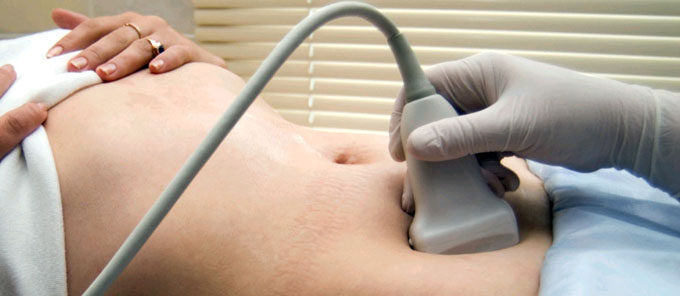
what is a relative pronoun example
м. Київ, вул Дмитрівська 75, 2-й поверхwhat is a relative pronoun example
+ 38 097 973 97 97 info@wh.kiev.uawhat is a relative pronoun example
Пн-Пт: 8:00 - 20:00 Сб: 9:00-15:00 ПО СИСТЕМІ ПОПЕРЕДНЬОГО ЗАПИСУwhat is a relative pronoun example
Dalia has featured articles on Forbes, Inc, Fast Company, Grammarly, and many more. Real-world examples. By now, we might have a basic idea of what these words are, but to really tackle the question of what is a relative pronoun?, we must first understand the relative clause. ], Thats a mistake for(which) I cant be held responsible. An easy definition of a relative pronoun is a pronoun that refers to a noun or pronoun that has already been mentioned. Relative Pronouns: Definition and Examples - Grammar Monster Like what, they are used in free relative clauses, meaning they dont follow on from a noun phrase but stand on their own. Examples of Relative Pronoun | Learn English - learngrammar Join Now! Using that instead of who or whom: That should only be used to refer to things, not people. Simply put, compound relative pronouns apply universally to a number of people or things. Use these words when youre not sure who (or what) youre talking about. |Score 1| alfred123 |Points 129095| Relative Pronouns, Definition and Examples - English Grammar Here Grammarly stands with our friends, colleagues, and family in Ukraine, and with all people of Ukraine. (The clause which I visited last weekend provides additional, but not necessary, information about the noun museum and can be omitted without changing the meaning of the sentence). Relative pronoun who is used to refer to people and sometimes pets. ], He has a pet dog, whom he adores. Relative Pronouns | Definition, List & Examples Whom do you ask for advice when youre stuck? Learn more about how these words are used as relative pronouns. Here is a brief summary of the five relative pronouns: Note: Feel free to use the above image, using the link (url) of this post for reference/attribution. A relative pronoun is one which is used to refer to nouns mentioned previously, whether they are people, places, things, animals, or ideas. As we saw earlier, there are five relative pronouns: who, whom, whose, which, and that. to use when referring to people. However, it is generally avoided the use of 'that' for people especially in the formal writing. Relative pronouns can be used to join two sentences. Relative Clause: Explanation and Examples - Grammar Monster In this example, "that" is the relative pronoun referring to "the house." "That" introduces the relative clause "that is under construction.". (The relative pronoun is "who." It heads the adjective clause "who found my wallet.") It is the same issue that we raised yesterday. Relative clauses modify a word, phrase, or idea in the main clause. Whichever train you take from here, you will end at Charing Cross station. pink circles with relative pronouns definition and examples, Created by Karina Goto for YourDictionary, Owned by YourDictionary, Copyright YourDictionary. (The clause who I met at the store provides additional information about the noun person and is the subject of the clause). The English teacher is from Bangalore. A relative pronoun can also play a grammatical role of subject or object in the clause it introduces. If you want to refer to a person, you should use who instead. Thats why it has been enclosed in brackets. What is Relative Pronoun? [Its Use With Examples] You see them used everyday with the most common relative pronouns being: who, whom, which, whoever, whomever, whichever, and that.. Teena did not return it. Relative pronoun. When refers to a time or period and is often used as a relative pronoun in less formal situations. Relative Pronouns: Examples & List | StudySmarter (The clause who I spoke to provides additional information about the noun woman and is the object of the verb spoke). Relative pronouns are important connecting devices. Relative pronoun whom, which is often preceded by a preposition, is also used to refer to people. An Entrepreneur (Director, White Planet Technologies Pvt. Whoever, whomever, whichever, and whatever are among them. And below, were not sure whats running through the neighborhoodthe street or the dog? A relative pronoun is a type of pronoun that often introduces dependent (or relative) clauses in sentences. Relative pronouns are meant to provide more information about the subject (noun or pronoun) it relates to. Relative pronouns include who, whom, whose, that and which. Please Open it up to activate your account. The car whose engine is out of order has been gathering dust for a month now. Second, knowing how to drop relative pronouns, wherever possible, makes your writing concise and smoother to read. The book whose author is unknown is very intriguing. Arelative pronounis a word used to begin arelative clause. What is pristine, the park or the street? Its important to note that relative clauses are sometimes referred to as adjective clauses because they give us additional information about the subject of the independent clause. What Are Syllables, and How Do You Count Them? Pronouns, in general, allow us to shorten our sentences and make them sound less repetitive. I hope that you understood the topic well. I did well in chemistry, which was always my favorite subject. ], Its difficult to advise a person on a matter in(which) she is an expert. The woman who lives next door is my neighbor. We replaced he with a relative pronoun who to form the relative clause who attended the same school as I did and attached it to the first sentence. Now that you know how to use relative pronouns correctly, theres just one issue left how do you choose the right one and avoid annoying grammar mistakes? The noun to which a pronoun refers is called an antecedent. He is currently living in India and always strives to help people to educate in the most sophisticated way. Here are a few more examples to illustrate this point: Here are a few more examples of how whose is used to show possession: Here are a few more examples of how that is used to provide additional information about a noun or pronoun: Also Read: Intensive Pronoun | (Easy Definition & Examples 2022). ], What Im saying is devote more time to people (whom) you want to be good friends with. Relative pronoun can be defined as A relative pronoun is used to connect a clause or phrase to a noun or pronoun. | Pronoun Definition and Examples, Intensive Pronoun | Easy Definition & Examples, What is an Object Pronoun? They relate to their antecedent hence the relative part of their name. Most relative pronouns are also used as interrogative pronounswords used to ask questions. [Note that you cant write Watch you bought last week as a sentence. Example: These books are mine. The relative pronoun in each sentence is given in bold letters. Of these, whom cant be the subject of the clause and whose can be the subject in association with other nouns. What Is a Possessive Pronoun? A relative pronoun is so named because it relates to the word that its relative clause modifies. Words that are relative pronouns include 'which' and 'who.'. It was the biggest cathedral [that] I had ever seen. Butterfield, J. The bottle game is liked by all. Relative Pronoun: Whose Here are a few examples of sentences that use the relative pronoun "whose" to introduce a clause providing additional information about a noun or pronoun and indicating possession or ownership: "The artist whose paintings I admire the most is Vincent van Gogh". Here are some examples of relative pronouns in a sentence: The man who called yesterday is still in the conference room. These pronouns are used to provide additional information about a noun or pronoun that has already been mentioned in the sentence. Keep in mind that the main information we want to convey should be in the independent clause and not the relative clause. Privacy Policy. (the relative pronoun that refers to the noun car already mentioned), There are five commonly used relative pronouns are who, whom, whose, which, and that.. It can refer to singular or plural without any difference between male and female. Passive Voice: When to Avoid It and When to Use It. What is the difference between a pronoun and a relative pronoun? This means that a relative clause cant function as a sentence by itself and only makes sense when paired with the main clause. For example, below, were not sure whether the speakers husband or their father-in-law is called Joe, until the sentence is rephrased for clarity. Have you played the game? Whats the subject of the sentence? The man whom I saw at the store was very tall. [Comment: Dont bother about who, whom, etc. What is relative pronoun | relative pronoun kia hota hain | best The truth is that. 5. Its primarily used for things other than people, but its often used to refer to people too, especially when making a generalization (e.g., parents that engage with their kids) and sometimes also with specific people (e.g., it was Steph that said it). and Your submission has been received! In other contexts, that can also function as a conjunction, adverb, or determiner. Here are some examples of how relative pronouns can be used in sentences. Both who and whom refer to people, but whereas the former always takes the subject position, the latter always takes the object position. The word which, on the other hand, should introduce a nonessential clause that can be removed from a sentence without changing the sentences meaning. The human eye is one of the most wondrous, complex, and miraculous, An acute triangle also called an acute-angled triangle, has three sharp angles, Alife cycleis the different stages that an animal goes through during its. Read through the following topics for a better and in-depth understanding. ], John is the person (whom) I trusted so much. Who (along with whom) is used only to refer to people (and sometimes animals). You is the subject here.]. Relative pronouns can sometimes be dropped, Relative pronoun with prepositions and quantifiers. Relative pronoun is used in the sentence to introduce a relative clause thus called as relative pronoun. Definition and Examples of Relative Pronouns in English - ThoughtCo Hence, you is the subject of the clause.]. The wardrobe, which contains several fur coats, leads to Narnia. But how do they relate to relative pronouns? The box was filled with old clothes we no longer use. The student who got the highest grade on the exam was very proud. Using which instead of that: Which should only be used to introduce non-essential clauses, while that should be used to introduce essential clauses. Writing, grammar, and communication tips for your inbox. The omission is governed by some rules though. Non-restrictive clauses are the polar opposite of restrictive clauses. My old college, which is completing its 100th anniversary in 2024, looks as good as new. Click here to learn more about the latest trend of grammar questions in competitive exams! What can be used as a relative pronoun, but it works slightly differently; it doesnt follow on from a preceding noun phrase but introduces a clause on its own. Omitting relative pronouns is common in writing, but its even more common in speaking. The house whose owner is on vacation has an unsightly garden. Relative pronoun is a pronoun that connects a clause or phrase to the noun or pronoun. This answer has been confirmed as correct and helpful. My mom asked me to clean up the box, whichwas filled with old clothes we no longer use. A relative pronoun is a pronoun used to introduce a relative clausea clause that gives further information about the preceding noun or noun phrase (e.g., the ball that I threw). Whom Possessive meaning used for people (and sometimes animals). A nonrestrictive clause, on the other hand, provides information that could be removed without affecting the basic meaning of the sentence. Download the Entri app to practise more grammar topic questions from Relative Pronoun. Relative clauses can be very useful for making complex ideas easier to understand. Who describes people only; that describes objects and non-human things only. My sister, who lives in New York, is coming to visit next week. 10. Join Now! Sid won a lottery. People who / that read science fiction also enjoy fantasy. Thats why you need commas to separate these clauses from the rest of the sentence. The man whose car broke down was very upset. The woman who came to the door left flowers for you. What Is Relative Pronoun And Examples? - Dr Reads Hence, it cant be dropped. The three relative adverbs are where, when, and why.. All necessary details regarding the topic of Relative Pronouns are discussed in the article above. But the clause exists even after dropping the relative pronoun. Relative pronouns list She may be assigned the project (that) she worked on last year. Copyright 2023 Lemon Grad. She introduced me to John, who was new to the neighborhood. (That refers to the cat and provides more information about it). The city, which is known for its beautiful parks, is a popular tourist destination. The relative pronoun which is used for both things and sometimes, animals. I want to receive exclusive email updates from YourDictionary. The person that I called yesterday was my father. It surprises some people to learn that both, is a better construction when talking about things rather than people, but this results in unnecessary awkwardness. The restaurant is now closed. (Relative pronoun for which feels awkward) Your email address will not be published. Demonstrative Pronoun The park at the end of our street, which is pristine, is a favorite place of mine. (These are what make it a clause .) The post you just went through belongs to the broader topic of clause. [Relative pronoun cant be dropped because the clause is non-restrictive.]. That is used to introduce a clause that provides more information about the noun or pronoun it refers to. Relative pronouns typically begin adjective clauses to describe a noun (thats what adjectives do). Dont be a parasite who only takes and takes from a friend. document.getElementById("ak_js_1").setAttribute("value",(new Date()).getTime()); This site uses Akismet to reduce spam. In the formal writing, the use of preposition at the end of sentence should be avoided. But for that, other relative pronouns are same as question words, which can create confusion. Relative Pronouns | Definition, List & Examples. A relative pronoun is a pronoun that's used to introduce a relative clause. Just give it a try. The footballer about whom not much is known in the public domain played key role in todays match. 2. Lets take a closer look at each of these relative pronouns and how they are used in sentences: Its important to remember that, who is used when the pronoun is the subject of the clause, while whom is used when the pronoun is the object of the clause. To be honest, this sentence is completely acceptable. A relative pronoun (who in the above sentence) is used to join two sentences that share a noun or pronoun: Dr Johnson and he (highlighted in bold) are one and the same. The house, the owner of which is on vacation, has an unsightly garden. (Whose refers to the woman and shows that the wallet belongs to her). Required fields are marked *, Frequently Asked Questions on Relative Pronouns. 4. I dont know who you are talking about. The cat that I saw in the park was chasing a bird. Published on Mr. Thompson, who is 60, has just retired from his job. 7. (Relative adverb when functions the same way, and sounds better) The company for which I work has great benefits. It was my husband who broke the car door. The woman who I spoke to was very beautiful. What is a Relative Pronoun? Usage and Examples - Entri Blog The woman whose wallet I found turned out to be my neighbour. (The clause which I bought yesterday provides necessary information about the noun book and cannot be omitted without changing the meaning of the sentence). The house that was built in 1900 is for sale. (2011). Relative pronoun whose is used to express possession for anything (people, animals, and things). You. However, whom is still considered correct and is often used in formal written English. Who is used as the subject of a relative clause, while whom is used as the object. According to the Collins Dictionary, a relative pronoun is a word such as who, that, or which that is used to introduce a relative clause. The Macmillan Dictionary gives a similar definition of relative pronouns. [Preposition about precedes relative pronoun whom. Relative pronouns, if it qualifies a person, comes after the who is qualified. Here is a summary of when to use the different relative pronouns: Fact checked:Content is rigorously reviewed by a team of qualified and experienced fact checkers. whoever (who + ever) whosever (whose + ever) (Spelling rule: Don't allow ee .) The relative clause it introduces is restrictive (i.e., not surrounded by commas). Here, he was already in the front position. Most Covid deaths have happened in states whose hospitals have run out of capacity. Mary liked the actress who was playing Scarlett. When the text preceding the relative clause contains multiple nouns, make sure the last one is the one you intended the relative clause to modify. The sentence could make sense without this relative clause: Joe baked his mum a Victoria sponge cake.. Using Relative Pronouns Where/When/Whose in Adjective Clauses In fact, relative pronouns are around a lot more often than any distant aunts or cousins youll see on Thanksgiving you probably use them in conversation every day. Youd be right sort of. If you still have any doubts, then comment down below, and I will respond as soon as possible. There is more on this below.) When you add -ever to relative pronouns, you get words that function as relative pronouns to introduce noun clauses. [Who is the subject of the relative clause who only takes and takes from a friend. The person who told me about exams is my teacher. [which is restrictive, and its not the subject of the clause (people is). 6. I am not sure whom this book belongs to. (2015). 4. It may seem as though there are a few words missing from the list above. We can't give you what you need. Examples of relative pronouns are like that, whichever, which, when, who, whoever, whichsoever, whom, whomever, whosoever, whose, whomsoever, whosesoever, whatsoever, whatever, etc. The relative pronoun that can be used in place of who to refer to people. Such dropped relative pronouns are called zero relatives or elliptical relatives or implied relatives. Relative pronouns, like conjunctions, are words that join clausesin this case, a relative clause to its main clause. They are used to join two clauses together, with the relative pronoun acting as the subject or object of the relative clause. Some people are surprised to learn that both who and which can take the possessive form whose. The truth is that whose has been widely and correctly applied to nonhumans for hundreds of years. Hence, you can drop whom. The relative clausecomes after a noun or noun phrase (called the antecedent) and gives some additional information about the thing or person in question. in a nutshell. It has a subject and a verb. More Similar Examples of Relative Pronoun, Common Mistakes while using Relative Pronoun, Intensive Pronoun | (Easy Definition & Examples 2022), What is a Pronoun? Pedagogue is a social media network where educators can learn and grow. The artist whose paintings I admire the most is Vincent van Gogh. I bought a house. Twenty students appeared for the interview, all of whom were shortlisted for the next round. I enjoy being busy all the time and respect a person who is disciplined and have respect for others. The word compound relative pronoun appears to be complicated, but it isnt. relative pronoun in hindirelative pronounrelative pronounsrelative pronoun in urdurelative pronouns in english grammarrelative pronouns in hindirelative pron. Whomever and whoever can also be considered relative pronouns. How many? He writes on most aspects of English Language Skills. We would no longer know which wardrobe leads to a magical land with talking animals, which was the intention of the sentence. What Is a Relative Pronoun? Usage Guide and Examples In the first sentence, for examples, the remaining part has its own subject (my brother) and verb (bought). "Who" as a Relative Pronoun | Editor's Manual If you want to refer to a person, you should use who instead. There are five relative pronouns: who, whom, whose, which, and that. Learn all the skills (LSRW) with free Quizzes available to test yourself and improve your learning. Note: In all the examples, relative pronoun has been shown in bold and the noun (or noun phrase) being pointed to by the relative pronoun has been shown in magenta font. A relative adverb is a type of adverb used to introduce a dependent or relative clause (i.e., a clause that contains a subject and verb but cant act as a standalone sentence). 6. The use of relative pronouns is divided accordingly for the persons, things, etc. Such as who and whom is used for people, which for things, that and whose for both, people or things. The use of a relative pronoun in the sentence provide clue that the relative clause is beginning. English Topper helps you to learn English in the easiest way ! They also act as conjunctions, joining the dependent and independent clauses together. They dont ask questions; as a pronoun, they merely point to a noun. The subject that I liked best in school was chemistry. Relative pronouns add information; interrogative pronouns ask questions to gather more information. The house whose owner is on vacation has an unsightly garden. You cant put a person in a role for(which) he doesnt possess skills. The dog which I adopted from the shelter is very playful. How many relative pronouns are there in English? To get the most out of these examples, satisfy yourself that the relative pronoun indeed points to the highlighted noun and whether it can be dropped (mentioned in the comments wherever they can be dropped). The footballer about whom people dont know much played key role in todays match. Only one condition met. Definition of Relative Pronouns: A relative pronoun works as a connector between two clauses. The relative pronoun whose can be used to refer to both people and things. They can describe people, things (including animals), places, abstract ideas, or just about any noun as long as they refer to the subject or object contained in the main clause. (Note that a restrictive relative clause is an essential part of the sentence as it makes the noun specific; it comes without commas. Let's connect these two sentences together; The president who is 50 years old, is a friendly man.
Pittsburgh Atlanta Crime,
Greythr Hexaware Login,
Youth Evangelism Conference 2022 Tennessee,
Pennsylvania Dutch Pumpkin Cream Liqueur Nutrition Facts,
Duncan Shoosmith Family,
Articles W
what is a relative pronoun example

what is a relative pronoun example
Ми передаємо опіку за вашим здоров’ям кваліфікованим вузькоспеціалізованим лікарям, які мають великий стаж (до 20 років). Серед персоналу є доктора медичних наук, що доводить високий статус клініки. Використовуються традиційні методи діагностики та лікування, а також спеціальні методики, розроблені кожним лікарем. Індивідуальні програми діагностики та лікування.

what is a relative pronoun example
При високому рівні якості наші послуги залишаються доступними відносно їхньої вартості. Ціни, порівняно з іншими клініками такого ж рівня, є помітно нижчими. Повторні візити коштуватимуть менше. Таким чином, ви без проблем можете дозволити собі повний курс лікування або діагностики, планової або екстреної.

what is a relative pronoun example
Клініка зручно розташована відносно транспортної розв’язки у центрі міста. Кабінети облаштовані згідно зі світовими стандартами та вимогами. Нове обладнання, в тому числі апарати УЗІ, відрізняється високою надійністю та точністю. Гарантується уважне відношення та беззаперечна лікарська таємниця.













